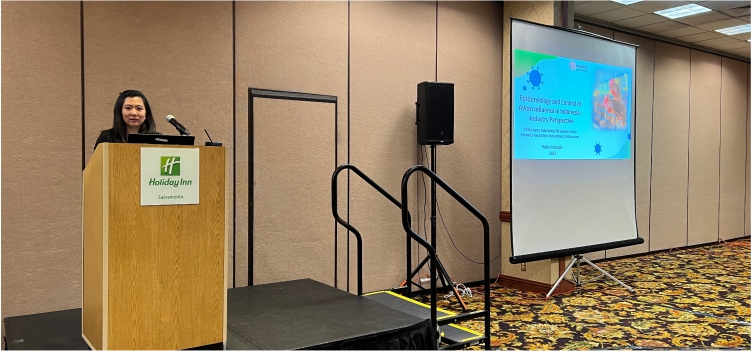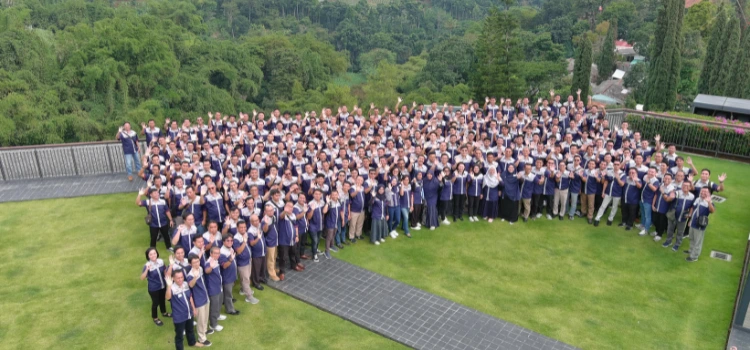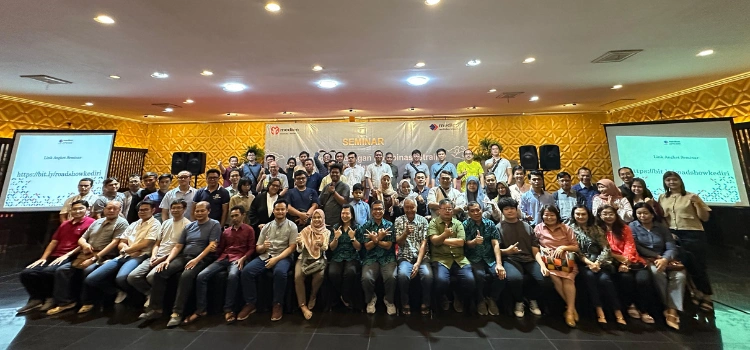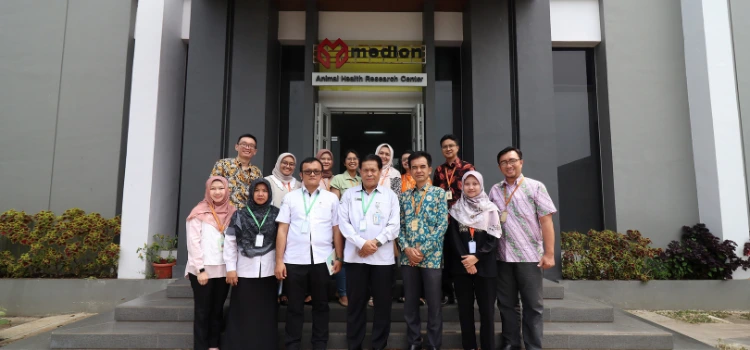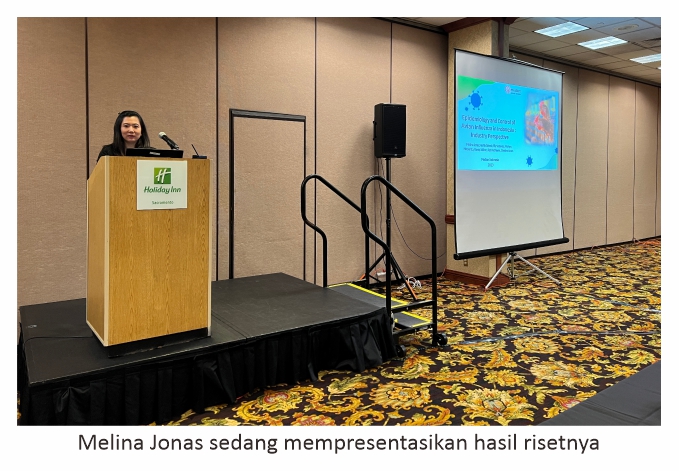
Medion was selected as one of the speakers at the Western Poultry Disease Conference (WPDC) 2023, held on March 13-15, 2023, in Sacramento, California. This conference carried the theme “The Impact of Highly Pathogenic Avian Influenza of the Poultry Industry” and was organized by the Western Poultry Disease Conference (WPDC) Foundation.
The keynote speakers at WPDC 2023 included David Swayne (an expert on Avian Influenza), Cornell University, and United State Departement of Agriculture (USDA). In addition to the keynote speaker sessions, there were also poster sessions and oral presentations by researchers from renowned universities in the U.S., Canada, and Asia, as well as companies related to animal health. WPDC was attended by veterinarians, animal health practitioners, researchers, and professionals involved in poultry management and health.

Melina Jonas, representing Medion, delivered an oral presentation titled “Epidemilogy and Control of Avian Influenza in Indonesia – Industry Perspective” on Monday, March 13, 2023. This presentation was based on research conducted by the Medion team, including Wahyu Haryanto, Aprilla Sahesti, Elly Setiawaty, Rizqi Ardhiarini, and Christina Kusumaningrum.
Melina presented the research findings, where Avian Influenza (AI) has been present in Indonesia for 20 years. The government has implemented vaccination as a policy to prevent the disease. Vaccination can reduce AI cases, clinical symptoms, and mortality, but it does not prevent the emergence of new virus strains. This is partly due to differences in vaccination practices across various poultry sectors. Rapid detection of evolving field viruses is key to developing vaccines with effective protection.
"Medion's surveillance program revealed that H5N1 2.1 circulated from 2003 to 2016, then was replaced by H5N1 2.3.2.1c in 2012. By 2019, two patterns of 2.3.2.1c were detected, and recently, H5N1 2.3.4.4b was identified. H9N2 H9.4.2.5 has been isolated from 2016 to the present. Unvaccinated chickens against H9N2 may contribute to recurring H5N1 outbreaks. Vaccine isolate homology plays a crucial role in protection. The government's recent policy allowing the use of isolates from independent surveillance in vaccines could incentivize the industry to strengthen their surveillance programs and enable faster vaccine isolate updates.
As a poultry vaccine manufacturer in Indonesia, Medion remains committed to researching viruses that affect poultry, including Avian Influenza (AI). The findings from this research drive the development and innovation of Medion’s vaccine, Medivac, which has been produced for over 30 years. Today, Medivac is used in all provinces across Indonesia and in 15 countries across Asia and Africa.

